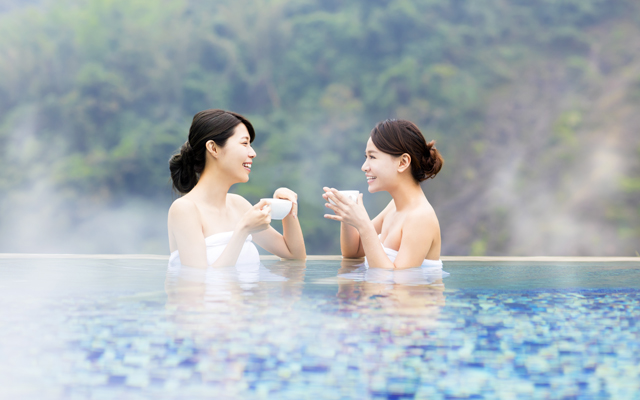Japan is stepping up its health and well-being offerings in anticipation that the sector will see a spike in demand once its international border fully opens.
National and local tourism bureaus have launched new programmes and are putting greater efforts into promoting spas, yoga classes, outdoors activities and healthy food.

Travellers today are prioritising “health and well-being” and “looking for sustainable experiences that blend their own need for wellness with that of the planet”, according to a 2021 report by operations consulting firm Accenture.
The Future of Wellness 2022 called on destinations to respond to “a new purpose-seeking wellness traveller, with experiences that help them grow intellectually, spiritually and creatively”.
In 2019, Japan’s wellness tourism market ranked fifth in the world and third in Asia, according to Global Wellness Summit, leaving Japan’s tourism suppliers hopeful to cash in on the new needs.
“Japan has the tourism resources to address the growing health consciousness of travellers from around the world. Now, with increased government focus and support, more and more regions of the country are gearing up to offer programmes,” said the Japan National Tourism Organization in a statement.
Examples include two new walking programmes in Kaminoyama, Yamagata Prefecture. Aimed at middle-aged and elderly visitors, the courses offer gentle exercise led by an English-speaking guide who also introduces local nature.
A similar new easy experience is forest therapy in Minamiboso, Chiba Prefecture, which is followed by a dip in an outdoor hot spring.
The Dragon Route, a series of trails through the central prefectures of Aichi, Gifu, Ishikawa and Toyama, has an “enrichment course” for health. It is tailored to visitors from China, Taiwan and Hong Kong, according to the website.
Suppliers are joining efforts too.
In March, Hotel Hisoca in Tokyo’s Ikebukuro began offering wellness experiences alongside peace of mind from infection risk, according to a company statement. Each of its 32 guest rooms has a private dry or mist sauna, and a stay includes relaxation drinks and fragrance oils.
Also recently opened is the 452m-high Ao Terrace at Izu Panorama Park, the gateway to the Izu Peninsula. Located in an area famous for hot springs, the terrace’s draw is Fujimi no Ashiyu, a free footbath with views of Mount Fuji that is designed for relaxation.




















